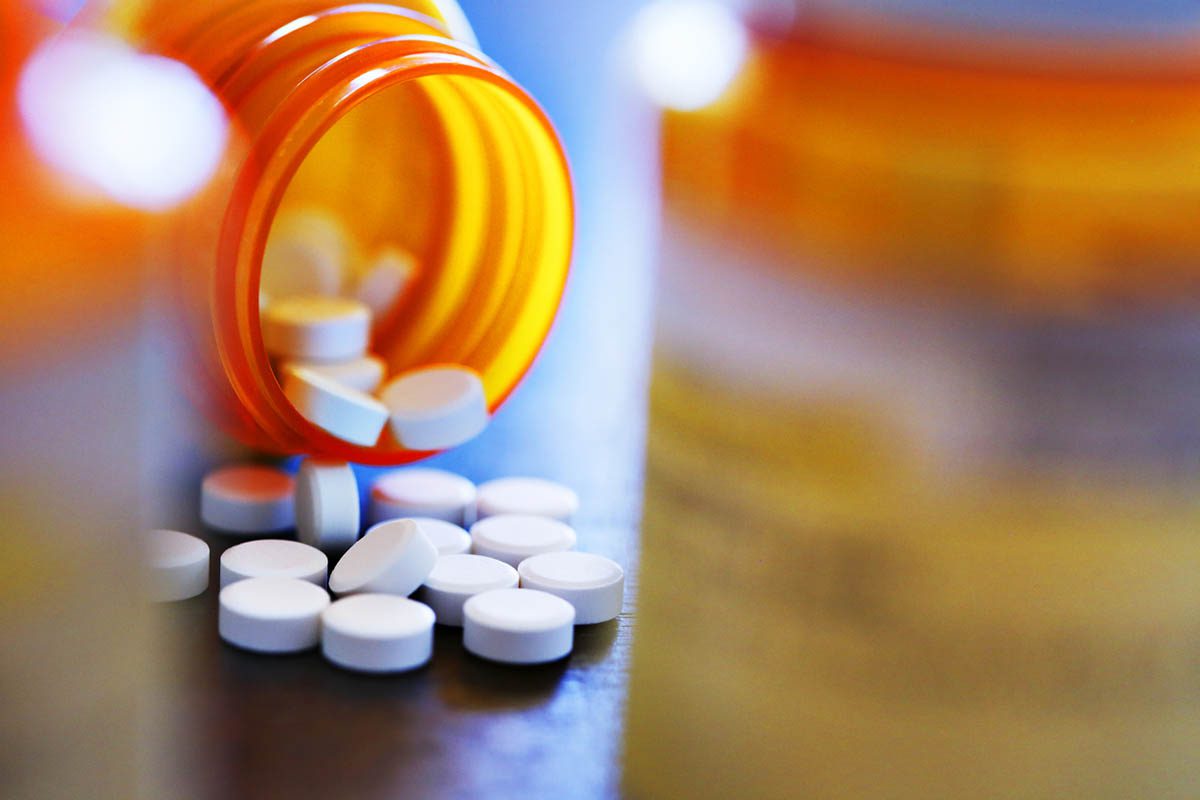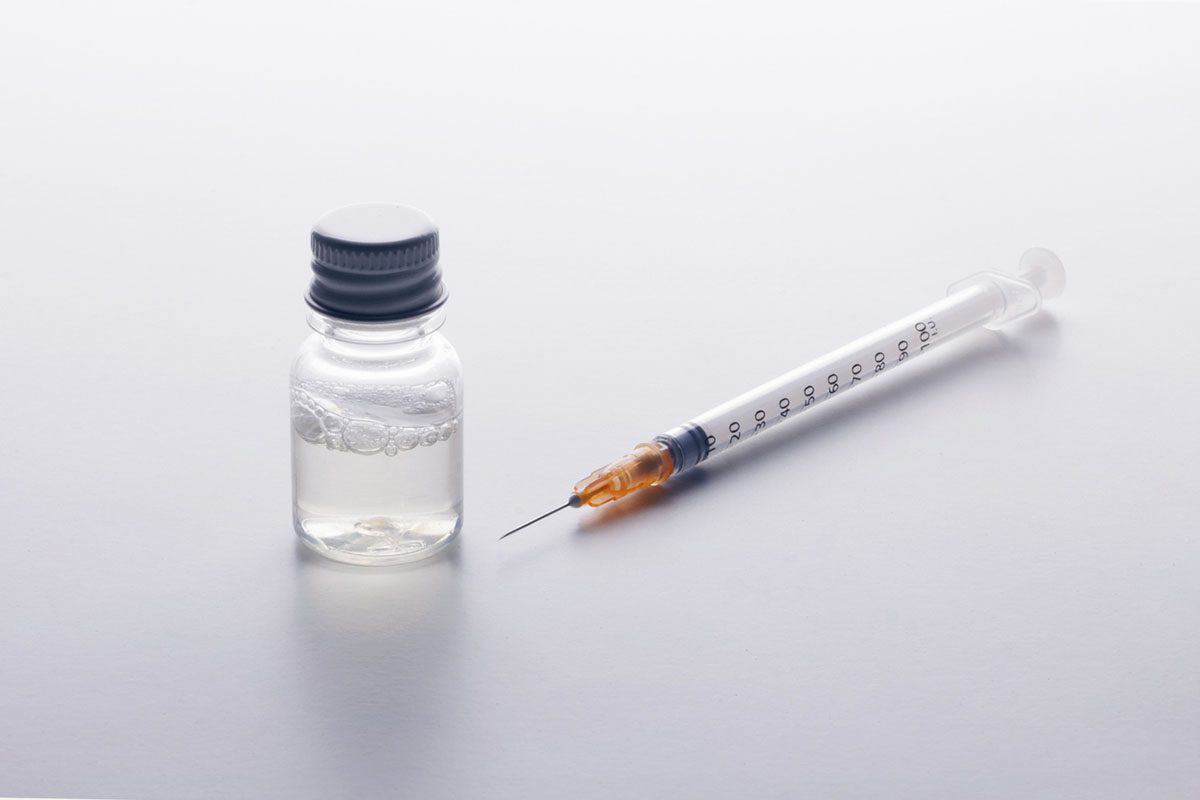Gambling on Acamprosate: A Case Report
To the Editor: Acamprosate is one of only 3 medications currently approved by the US Food and Drug Administration (FDA) for the treatment of alcohol dependence. Marketed in the United States as Campral,1 acamprosate received its FDA approval in 2004, 15 years after it was approved for use in Europe. The first large, randomized controlled trial (RCT) to be published was conducted in France and showed acamprosate to significantly reduce alcohol relapse at 3 months compared to placebo using plasma γ-glutamyl transpeptidase as a marker for alcohol ingestion.2 Although a large, multisite RCT3 conducted in the United States demonstrated a lack of efficacy for acamprosate in the treatment of alcoholism compared to placebo either by itself or with any combination with naltrexone, a combined behavioral intervention, or both, this negative result surprised the study authors given the positive results from many preceding trials.
The following case report describes the somewhat serendipitous effect of acamprosate in a patient with not only alcohol dependence but also an impulse control disorder—pathological gambling.
Case report. Ms A, a 50-year-old woman with a long history of recurrent major depression and labile hypothyroidism (following thyroidectomy for papillary thyroid cancer), presented to my internal medicine-psychiatry consultation clinic in May 2008 for evaluation of difficult-to-control symptoms of depression. She had been diagnosed with major depression at age 28 and over time had been prescribed 5 different antidepressants of various classes, doing best initially on maprotiline (unknown dose) and more recently noting only marginal benefit from duloxetine (60 mg/d).
During her initial evaluation, Ms A hinted that her alcohol intake had been steadily rising, going from 1 to 2 drinks per day to 3 to 7 drinks per day over the past few months, which was attributed by the patient to work stress and low mood. She also reported gambling 3 to 4 times per week, sometimes losing hundreds of dollars at a time. She screened negative for bipolar disorder and remained fully functional in most aspects of her life, with no history of mania or hypomania.
Despite her escalating alcohol use and gambling, Ms A did not wish to participate in Alcoholics Anonymous or Gamblers Anonymous, feeling that she could cut down on both behaviors without much difficulty on her own. Thus, effectively, the treatment plan was limited to discontinuing duloxetine in favor of venlafaxine, a medication that she had previously found to be beneficial for her depression.
Although followed loosely by her primary care physician in the interval, Ms A did not follow up in the medicine-psychiatry clinic again until September 2009, just prior to entering an outpatient alcohol treatment program. She explained that she had received a DUI [driving under the influence of alcohol] charge 2 months earlier and was now able to admit that she felt unable to go for more than 2 days at a time without drinking, at this point meeting DSM-IV-TR criteria for alcohol dependence. She disclosed that she often frequented bars with a friend and had continued to gamble—now up to 5 times per week, often chasing losses, hiding her gambling from her partner, and noticing tolerance and withdrawal when not gambling—ultimately meeting 7 of 10 DSM criteria for pathological gambling. Yet, at this visit, the emphasis was firmly on evaluating and treating Ms A’s alcohol dependence given her dangerous pattern of driving while intoxicated.
As Ms A was in the preparation stage of alcohol cessation and showed no signs of active withdrawal, the merits of acamprosate (standard dose of 666 mg 3 times daily) to treat her alcohol dependence were reviewed. She was interested in trying acamprosate therapy to help control her urges to drink. Ironically, at this time she reported feeling better from a mood standpoint on venlafaxine treatment, still denying any symptoms of mania. So, venlafaxine was continued.
By follow-up in January 2010 (after an interim medication check) and after completing 6 of her scheduled 12 outpatient substance abuse treatment program meetings, Ms A now reported early partial remission of alcohol use. However, she was most ecstatic about her newfound ability to avoid gambling entirely, saving significant amounts of money in the process. She felt that acamprosate had made the biggest difference on her gambling, noting that when she briefly ran out of the medication for about 1 week, she quickly fell back into her maladaptive patterns of gambling. After resuming acamprosate treatment, though, she once again became "100% gambling free." A later phone call to the patient in early February 2010 confirmed that Ms A was adhering to acamprosate treatment and abstaining from both alcohol and gambling.
To the best of my knowledge, this is the first report documenting clinical efficacy of acamprosate in the treatment of pathological gambling. A recent literature search of the Ovid database (1948-present) cross-referencing the terms acamprosate and gambling yielded no report. Both of the other medications approved by the FDA for the treatment of alcohol dependence (naltrexone and disulfiram) have some data in the treatment of pathological gambling,4,5 while, to date, acamprosate has not been reported. Naltrexone, an opioid receptor antagonist, has been the best studied,4 but recently a case report was published on the use of disulfiram in controlling comorbid pathological gambling and alcohol dependence.5 However, in that case, the disulfiram administration was completely supervised (3 times weekly) by an attending physician for a 12-month period. Such intense outpatient follow-up, while very likely ideal in the primary treatment of both addictions and impulse control disorders, would have been untenable for the patient described in this report, as a result of her demanding work schedule. In this case, acamprosate did not require direct supervision, and, yet, its efficacy and cost-effectiveness remained undeniable. To my knowledge, only 1 open-label study6 has been conducted on the role of acamprosate in pathological gambling, but it remains unpublished.
The specific mechanism of action for acamprosate is not entirely understood, rendering its pathological gambling-controlling pharmacodynamic effects purely speculative. The stabilization of the disequilibrium between the central inhibitory neurotransmitter γ-aminobutyric acid and its excitatory counterpart glutamate is thought to confer on acamprosate its benefits in the postwithdrawal period of alcohol dependence.1 Perhaps this stabilization is also partly responsible for the effects in pathological gambling, which, although an impulse control disorder, shares many similarities with substance dependence. Ultimately, the explanation for why acamprosate controls not only alcohol dependence but also pathological gambling is likely to be multifactorial, as there are many disease determinants involved.
While no medication has been FDA approved for pathological gambling, acamprosate must now be considered a strong candidate for more thorough investigation.
References
1. Campral [package insert]. St Louis, MO: Forest Pharmaceuticals, Inc: 2005. http://www.frx.com/pi/campral_pi.pdf. Accessed February 12, 2010
2. Lhuintre JP, Moore N, Tran G, et al. Acamprosate appears to decrease alcohol intake in weaned alcoholics. Alcohol Alcohol. 1990;25(6):613-622. PubMed
3. Anton RF, O’ Malley SS, Ciraulo DA, et al. COMBINE Study Research Group. Combined pharmacotherapies and behavioral interventions for alcohol dependence: the COMBINE study: a randomized controlled trial. JAMA. 2006;295(17):2003-2017. PubMed doi:10.1001/jama.295.17.2003
4. Kim SW, Grant JE, Adson DE, et al. Double-blind naltrexone and placebo comparison study in the treatment of pathological gambling. Biol Psychiatry. 2001;49(11):914-921. PubMed doi:10.1016/S0006-3223(01)01079-4
5. Mutschler J, Bühler M, Grosshans M, et al. Disulfiram, an option for the treatment of pathological gambling? Alcohol Alcohol. 2010;45(2):214-216. PubMed
6. ClinicalTrials.gov. Acamprosate in the treatment of pathological gambling. http://clinicaltrials.gov/ct2/show/NCT00571103. Accessed February 5, 2010.
Author affiliation: Departments of Internal Medicine and Psychiatry, Oregon Health & Science University, Portland. Potential conflicts of interest: Dr Raj is a speaker for AstraZeneca. Funding/support: None reported.
doi:10.4088/JCP.10l06059ecr
© Copyright 2010 Physicians Postgraduate Press, Inc.





